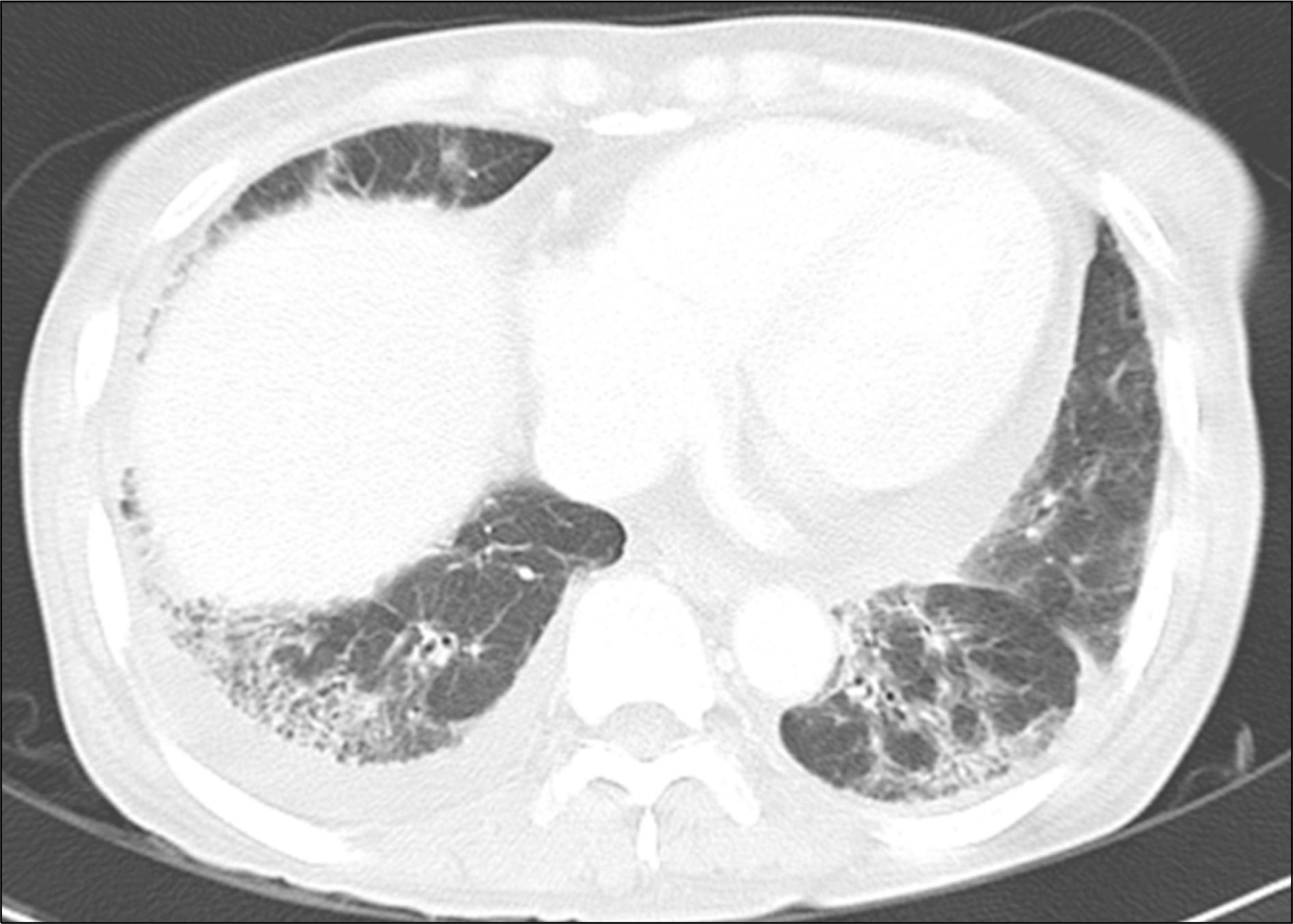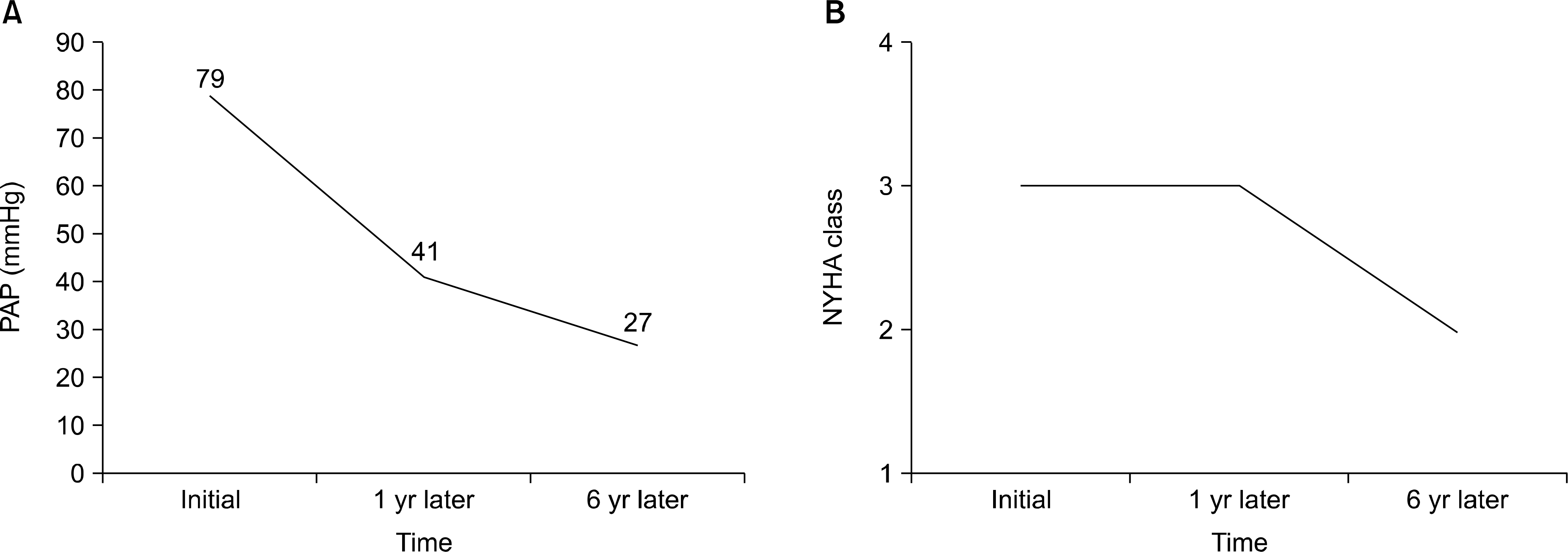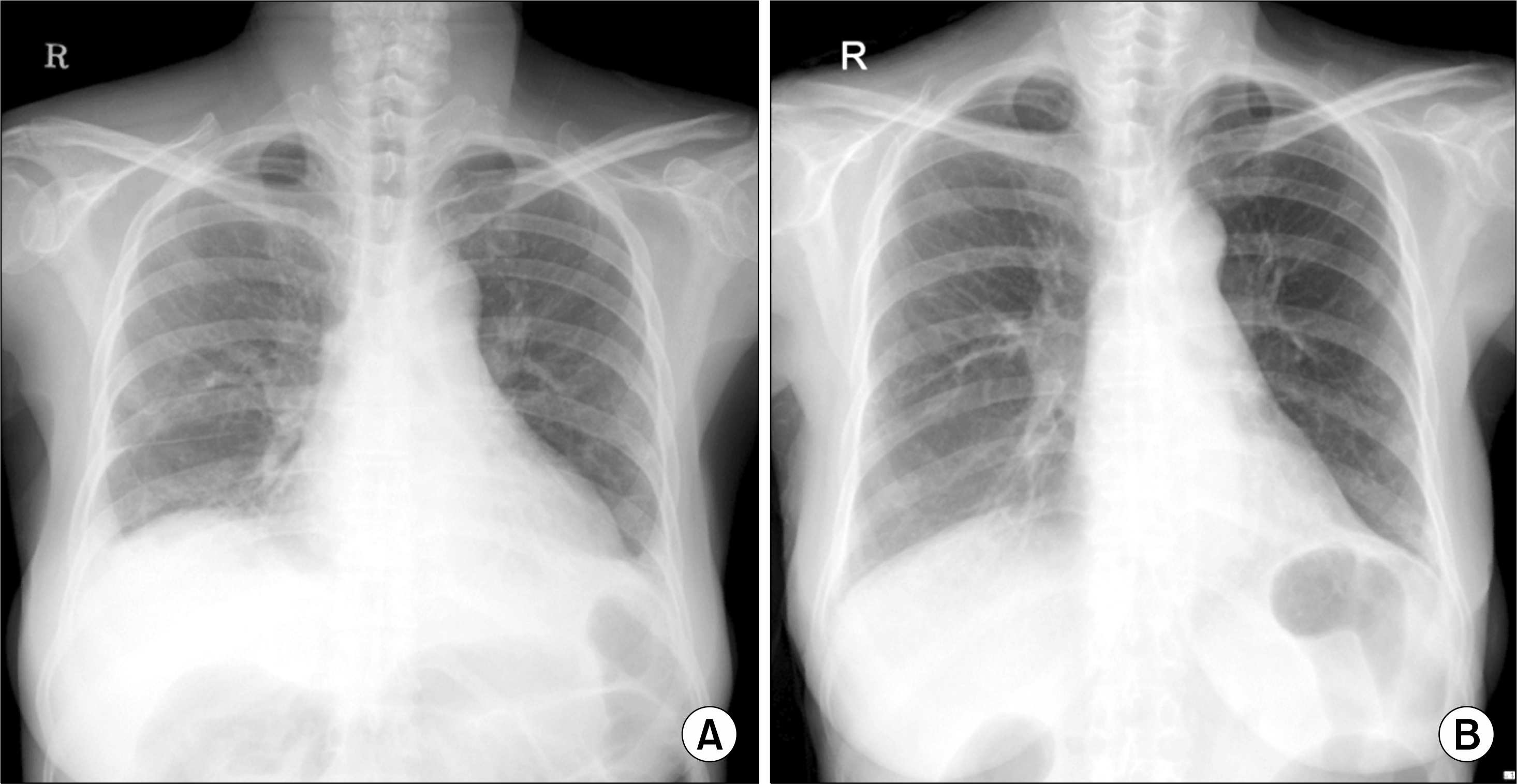Abstract
Pulmonary arterial hypertension is a critical manifestation of systemic sclerosis (SSc) and is a main cause of death. Several treatment modalities for SSc have been identified, with effects that improve quality of life and mortality rates. However, whether these drugs can also normalize pulmonary arterial pressure, remains unclear. Here, we report the case of a woman with diffuse SSc with pulmonary arterial hypertension, who had a functional status equivalent to the New York Heart Association class III. The patient was treated with inhaled iloprost. After six years of inhaled iloprost therapy, echocardiography showed that pulmonary arterial pressure normalized, accompanied by improvement in functional capacity. Inhaled iloprost might not only normalize pulmonary arterial pressure, but also improve the functional status of patients with SSc with pulmonary arterial hypertension.
Go to : 
REFERENCES
1. Pope JE, Lee P, Baron M, Dunne J, Smith D, Docherty PS, et al. Prevalence of elevated pulmonary arterial pressures measured by echocardiography in a multicenter study of patients with systemic sclerosis. J Rheumatol. 2005; 32:1273–8.
2. Mathai SC, Hassoun PM. Therapy for pulmonary arterial hypertension associated with systemic sclerosis. Curr Opin Rheumatol. 2009; 21:642–8.

3. Olschewski H, Simonneau G, Galiè N, Higenbottam T, Naeije R, Rubin LJ, et al. Inhaled iloprost for severe pulmonary hypertension. N Engl J Med. 2002; 347:322–9.

4. Denton CP, Cailes JB, Phillips GD, Wells AU, Black CM, Bois RM. Comparison of Doppler echocardiography and right heart catheterization to assess pulmonary hypertension in systemic sclerosis. Br J Rheumatol. 1997; 36:239–43.

5. Miyamichi-Yamamoto S, Fukumoto Y, Sugimura K, Ishii T, Satoh K, Miura Y, et al. Intensive immunosuppressive therapy improves pulmonary hemodynamics and long-term prognosis in patients with pulmonary arterial hypertension associated with connective tissue disease. Circ J. 2011; 75:2668–74.

6. Chung L, Liu J, Parsons L, Hassoun PM, McGoon M, Badesch DB, et al. Characterization of connective tissue disease-associated pulmonary arterial hypertension from REVEAL: identifying systemic sclerosis as a unique phenotype. Chest. 2010; 138:1383–94.
7. Humbert M, Yaici A, de Groote P, Montani D, Sitbon O, Launay D, et al. Screening for pulmonary arterial hypertension in patients with systemic sclerosis: clinical characteristics at diagnosis and long-term survival. Arthritis Rheum. 2011; 63:3522–30.

8. Gopal DM, Doldt B, Finch K, Simms RW, Farber HW, Gokce N. Relation of novel echocardiographic measures to invasive hemodynamic assessment in scleroderma-associated pulmonary arterial hypertension. Arthritis Care Res (Hoboken). 2014; 66:1386–94.

9. Rubin LJ, Badesch DB, Barst RJ, Galie N, Black CM, Keogh A, et al. Bosentan therapy for pulmonary arterial hypertension. N Engl J Med. 2002; 346:896–903.

10. Badesch DB, Tapson VF, McGoon MD, Brundage BH, Rubin LJ, Wigley FM, et al. Continuous intravenous epoprostenol for pulmonary hypertension due to the scleroderma spectrum of disease. A randomized, controlled trial. Ann Intern Med. 2000; 132:425–34.
Go to : 




 PDF
PDF ePub
ePub Citation
Citation Print
Print





 XML Download
XML Download